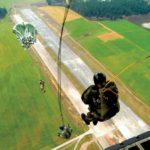“Your visions will become clear only when you can look into your own heart. Who looks outside, dreams; who looks inside, awakes.” – C.G. Jung
Do you know who you are? I imagine most people would say they do, however, I would argue otherwise. For one, knowing yourself doesn’t come naturally. Self-knowledge is attained over time through focused effort which I don’t think most people have an interest in, or the time, to do properly. But it’s no one’s fault. It’s more likely that introspection simply goes against human nature. We don’t like to think about ourselves or our lives on any deep level for fear that it may reveal some very difficult realities. However, if you knew yourself better there is a good chance that you would live your life with more realistic expectations, you’d be better able to express your ideas to others, and you’d likely make better choices based on real criteria rather than a passing feeling. But I’ll be honest, for all its benefits, self-knowledge is hard to come by. It can take a lot of effort to understand yourself and worst of all you may struggle to apply what you learn about yourself. That said, if you’ve never taken the time to understand yourself I would encourage you to start now. Here are four ways to get that ball rolling:
1. Be curious about your feelings
When you experience emotions, especially intense emotions like anxiety, be very curious about the feelings and where they might be coming from. People have a tendency to experience intense emotion in a reactive manner, which although natural, doesn’t help you to understand why you are experiencing your emotions in the way you are.
2. Look for patterns
Look for patterns in your behavior or thinking process that may help you understand how your feelings drive what you think and do. Again, be very curious. In short, why do you think and act the way you do? And what are the benefits or drawbacks?
3. Understand your role in problems
The truth is that often anxiety does come out of nowhere. So it’s not like people always create their own anxiety problem. However, that doesn’t mean that people don’t think and do things that increase the intensity and duration of their symptoms. Think about how you sustain or worsen your issues with anxiety so you can seek alternatives.
4. Get some feedback
Ask a close friend or loved one to help you understand yourself. You can simply ask the person to describe your character and way of being. Hopefully you’ll hear a few surprising bits of information that may give you information around how you operate, think, and feel.
These are, of course, just a few basic steps. Obviously there’s a lot more you can do to increase self-knowledge. This was simply an effort to introduce the idea of increasing self-knowledge in general. In the end, if you understand yourself well you will understand not just your personal quarks but also things like your base fears, desires, and motivations. IMHO it’s pretty powerful stuff.
So, listen now.
In this episode of The Anxiety Guru Show you’ll hear about:
- Why self-knowledge matters
- 4 methods you can use to increase self-knowledge
- How a lack of self-knowledge can be harmful
- Answers to listener emails
To listen, you can click the play button below or visit the AG iTunes page.





Great post, these are things I’ve definately been trying to incorporate in my life as I battle through this war. They are things that can be very simple but very hard. Especially the feedback portion.
Love these tips =) Thanks for sharing. People fighting anxiety conceal their anxiety and they do everything in their power to make sure people don’t see their struggle. We should try and reach out to people who feel they don’t fit in and let them know they’re not alone.
Great post. I will try to follow these steps and see if they work. I have severe anxiety and cant shake it off. But I still have hope for myself even though ever since I’ve had it my life turned upside down. Everybody tells me its mental but I feel physical pains so I don’t know what to do believe. Stay positive people we will be fine. Thank you for sharing.
Chat Conversation Start
Hi, I have been listening to your pod casts and reading your articles and they are fantastic. I have just found out that for the last 4 years my anxiety is PTSD from brith trauma with my son. I was wondering as i am constantly running on adrenaline without a thought or a trigger my brain believes everyday is something i need to survive so im running on adrenaline all the time. I was wondering if you know with all your experience and knowledge how we lower adrenaline when it is something that is 24/7? Thanks so much